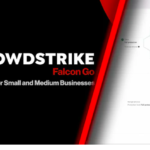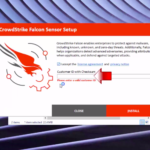Operating a small business comes with many responsibilities and risks. As a small business owner, you need to protect your company’s assets and finances in case issues arise. Purchasing the right insurance coverage is crucial for shielding your business from potential losses and lawsuits. Small business liability and property insurance packages provide affordable and comprehensive protection tailored for small companies.
What is Small Business Insurance?
Small business insurance refers to policies designed for the unique risks and needs of small companies. It commonly includes:
- General liability insurance – Covers third-party bodily injury and property damage claims.
- Property insurance – Covers damage to your office space, equipment, furniture, and inventory.
- Business interruption insurance – Replaces lost income if you can’t operate due to disaster.
- Commercial auto insurance – Protects vehicles used for your business.
- Worker’s compensation – Covers medical and lost wage costs for injured employees.
- Cyber liability insurance – Protects against data breaches, hacking, and digital threats.
Bundling these essential policies together in one package simplifies the insurance buying process and can save you money.
Benefits of Small Business Insurance Packages
Purchasing a small business insurance package provides several advantages over buying individual policies:
Convenience
You deal with just one insurer and one renewal date instead of juggling multiple policies. This streamlines paperwork and recordkeeping.
Cost Savings
Insurers offer discounts for bundling multiple policies together. Purchasing coverage as a bundle is cheaper than buying individually.
Customization
Packages allow customization to match your industry’s unique risks. You only pay for the coverage options your business needs.
Coverage Gaps Protection
When structured properly, packages prevent coverage gaps that can lead to uninsured losses.
Risk Management Assistance
Many insurers provide consultations to identify vulnerabilities. They recommend ways to strengthen risk management practices.
Key Coverages in Small Business Insurance Packages
While components vary between providers, core small business insurance packages generally include:
Commercial General Liability Insurance
This is the most essential coverage for small companies. It protects your business if third parties are injured on your premises or by your operations. It also covers damage to third-party property. Minimum limits are usually $1 million per occurrence and $2 million aggregate. Higher limits are wise for higher-risk industries.
General liability insurance covers:
- Bodily injury – Pays medical bills for injuries to a third-party
- Property damage – Repairs or replaces damaged third-party property
- Personal injury – Covers libel, slander, false advertising, and copyright infringement
- Medical payments – Limited payments for injuries to third parties regardless of fault
Commercial Property Insurance
Property insurance shields your business location and contents from damage. Typical coverages include:
- Building coverage – Repairs damage to your office, store, or other workplace
- Business personal property – Replaces damaged inventory, equipment, furnishings, and supplies
- Loss of income – Reimburses income lost due to suspended operations after a covered loss
- Equipment breakdown – Fixes or replaces broken equipment like HVAC systems
- Tenant glass coverage – Repairs glass breakage
- Valuable papers coverage – Restores damaged business records and documents
- Crime coverage – Covers employee theft and cybercrimes like wire transfer fraud
Business Owner’s Policy (BOP)
A BOP efficiently packages property and liability coverages. It’s the most common small business insurance policy. Standard BOP inclusions are:
- Building and business personal property
- General liability protection
- Medical payments
- Business interruption income loss
- Hired and non-owned auto liability
Commercial Auto Insurance
This policy protects against losses involving vehicles used for your business. Besides collision, it covers injuries to third parties and damage to their property. Common options include:
- Liability – Bodily injury and property damage
- Medical payments
- Uninsured motorist – Covers injuries from uninsured drivers
- Underinsured motorist – Applies when at-fault driver has inadequate limits
- Comprehensive – Theft, vandalism, weather damage
- Collision – Damage from rollovers, accidents
Umbrella Liability Insurance
Umbrellas provide additional liability limits above existing policies. This added protection is vital for higher risk businesses. Umbrellas commonly kick in at $1 million to $5 million.
Cyber Liability Insurance
With growing cyber threats, data breach and cyber liability coverage is essential. It covers costs related to data breaches, hacking, malware, ransomware, and online fraud.
Professional Liability Insurance
Also called errors and omissions (E&O) insurance, professional liability protects service-focused businesses like consultants, accountants, and lawyers. It covers damages if clients allege your services were negligent or faulty.
Choosing the Right Small Business Insurance Package
Follow this criteria when selecting an insurance package for your small business:
Identify Exposures – With your broker or insurer’s help, pinpoint vulnerabilities in your operations, premises, equipment, and data. This reveals the coverages your business requires.
Assess Risk Level – Higher risk industries like construction will need more robust protections than a low-risk retailer. Consider liability exposures, value of your building and equipment, crime rates, natural disaster probability, and cyber threats.
Compare Multiple Quotes – Get quotes from several insurers. Look for an A-rated carrier offering strong customer service. Ask about discounts for alarm systems, protective equipment, and risk management.
Mind Coverage Limits – Don’t skimp and buy inadequate limits. It’s penny wise and pound foolish. Review sublimates closely to ensure adequate coverage.
Examine Exclusions – Watch for exclusions that gut coverage. Look for packages with clearly worded, understandable, and minimal exclusions.
Add Endorsements – Consider extra endorsements to tailor the package to your business’s needs, such as flood coverage, cyber liability, or employee dishonesty coverage.
Review Annually – Reassess coverages each year as your business changes. Report any revenue growth, new equipment, or expanded services to your insurer.
Answering Small Business Insurance FAQs
What is the average cost of small business insurance?
Average small business insurance costs range from $600 to $1,200 annually but vary widely based on your location, industry, and revenue size. High-risk industries like construction pay more, while professional services pay less. Bundling multiple policies together often reduces costs up to 15%.
How much liability insurance should a small business have?
Experts recommend a minimum of $1 million in general liability coverage. Higher risk industries should consider $2 million or even $5 million limits. Adding umbrella liability insurance above your general liability policy gives added affordable protection.
What does business owners policy (BOP) cover?
BOPs bundle property and liability insurance together conveniently. They cover your building, equipment, lost income, liability claims, and medical expenses. BOPs allow custom add-ons like cyber policies, flood insurance, or earthquake coverage.
Does a small business need professional liability insurance?
Service providers like consultants, accountants, architects, and lawyers should carry professional liability or errors and omissions (E&O) coverage. It covers financial damages if clients allege your services were negligent or flawed. Limits of $1 million are typical.
What is the difference between general liability and professional liability insurance?
General liability protects against bodily injury, property damage, personal injury and advertising injury claims. Professional liability protects your business specifically against errors and omission in delivering your services. Both policies are essential coverage.
Summary
Protecting your small business against unforeseen losses and legal claims is crucial. Purchasing tailored, adequate insurance allows you to run your company without excess worry. Assessing your risks and choosing the right small business insurance package provides peace of mind and allows you to focus on growing your business. With proper coverages in place, your company has a safety net if unfortunate events occur. Investing in the right insurance early on positions your small business for success.










